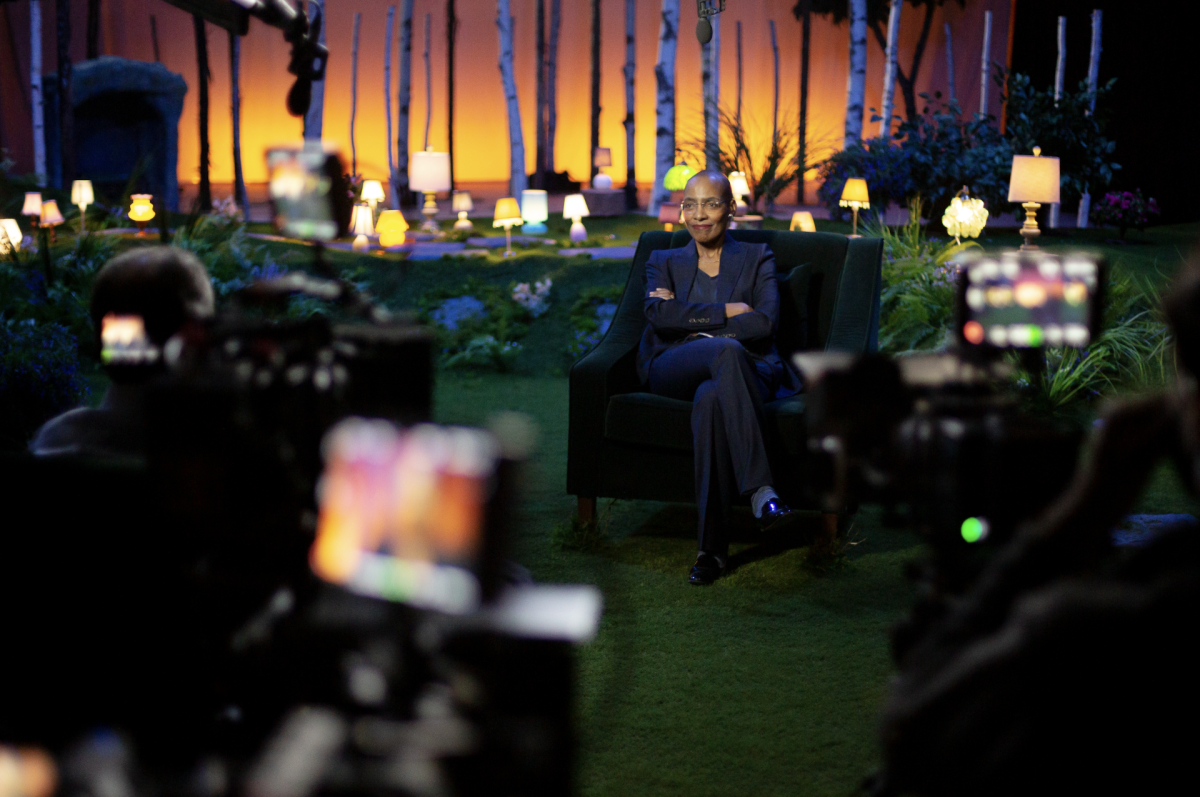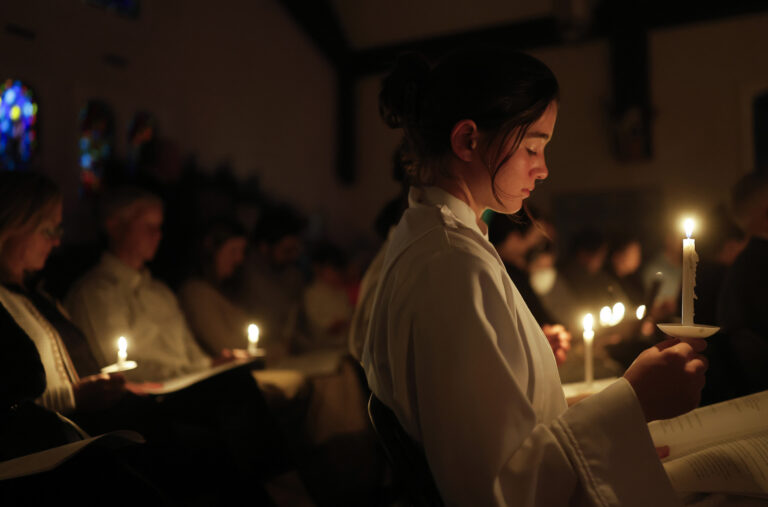It’s no secret: Our country is going through dark times. Extreme weather is devastating local communities. Families are struggling to put food on the table. Our children’s health is rapidly declining. Meanwhile, Americans are becoming increasingly resentful of fellow citizens who don’t look like them.
We need a new path forward.
I recently had the immense pleasure, and challenge, of interviewing some of America’s great minds for PBS‘ new non-fiction series, Wisdom Keepers, exploring who we are, how we got here, and what it means to be human. I spoke with a broad range of influential leaders, from world-renowned philosophers and scientists to faith leaders and more.
Mario Tama/Getty Images
It’s impossible to capture all they taught in a single op-ed, but I’ve taken away four important lessons that can help us move forward as a country, find common ground, and rebuild.
1. Look for meaning.
Reverend Kelly Brown Douglas, African American Episcopal priest and womanist theologian, asked a simple, yet devastating question, “Are we going to be the authors of our own destruction?” We have traveled so deep into sin, into narcissism, thinking only about ourselves and competing against the “other.” How do we escape this cycle and ensure lasting change?

Photo Courtesy of Rengim Mutevellioglu/Fordham University
To Reverend Douglas, a core part of this flaw in our humanity is our individualistic journeys to live a happy life, when, in reality, we need to think about how we can live a more meaningful life. Asking ourselves this question is inherently less selfish. It forces us to think about how we can do good for the community and not just ourselves. As Reverend Douglas put it, “Our pursuits must always be connected to the common good.”
2. Use other people as your reference point.
Franciscan priest and spiritual writer Richard Rohr took it a step further. He told me, “You have to get outside of your defended world.” Rohr insists we aren’t the same, we don’t need to be, and we need to stop defending this notion that we are. We must embrace our differences and the collective.
“When you can allow other people to be the reference point, at least as much as you are, you start in the school of compassion,” he said.
When we are the center of our world, we are choosing to guide ourselves with ego. In contrast, when we allow others to be our reference point, we are guiding ourselves with compassion. When it comes to building community and navigating our path forward, we must think less about “I” and more about “we.” Less about what we like and more about what is.
3. Have humility in seeking out truth.
For Former National Institutes of Health Director Francis Collins, fake news and our country’s push back on “fact” is at the center of our society’s divisions. Our political polarization has created a crisis about what information to trust. He put it simply, “Willingness to accept objective truth as a reality is under threat.”
To reverse this dangerous path we’re on, Collins believes we need to prioritize integrity, competence, and humility. We need to understand—and accept—what we know and what we don’t know, what we’re an expert on and where we have room to learn more.
4. Put love at the center.
Pastor A.R. Bernard, who runs the Christian Cultural Center, a Brooklyn megachurch, explained the road ahead pretty simply: love is our path forward.
After experiencing the devastating death of two sons only two years apart, Pastor Bernard told me his faith saved him and kept him from living in anger and surrendering to his suffering. Thanks to his faith, and at the center of that faith, love, Pastor Bernard knew that there was more to his existence than his grief.
The first half of 2025 has brought so many of us immense pain and loss, from the flash floods in Texas to immigrant families being torn apart, daily shootings, and the ongoing wars. The list goes on. Dealing with these tragedies is no easy thing. But that doesn’t mean there isn’t a road ahead.
What emerged from the hours of deep conversations, the persistent conclusion might be put this way: “Yes, we are broken. But the good news is we can be fixed.” When Pandora of mythological fame opened the box and released all the troubles of the world, something important remained. The first human woman looked down and saw “hope still lay in the bottom of the box.”
My guests are clear-eyed, not starry-eyed. They live in the real world and see it for what it is. Yet, for all their willingness to talk with me about where we are in this post Great Recession, post-pandemic, Trump Redux, deeply divided country, and world, hope is still there. It’s right there, waiting to be grasped and embraced.
Ray Suarez is a journalist and host of the new PBS program Wisdom Keepers.
The views expressed in this article are the writer’s own.

